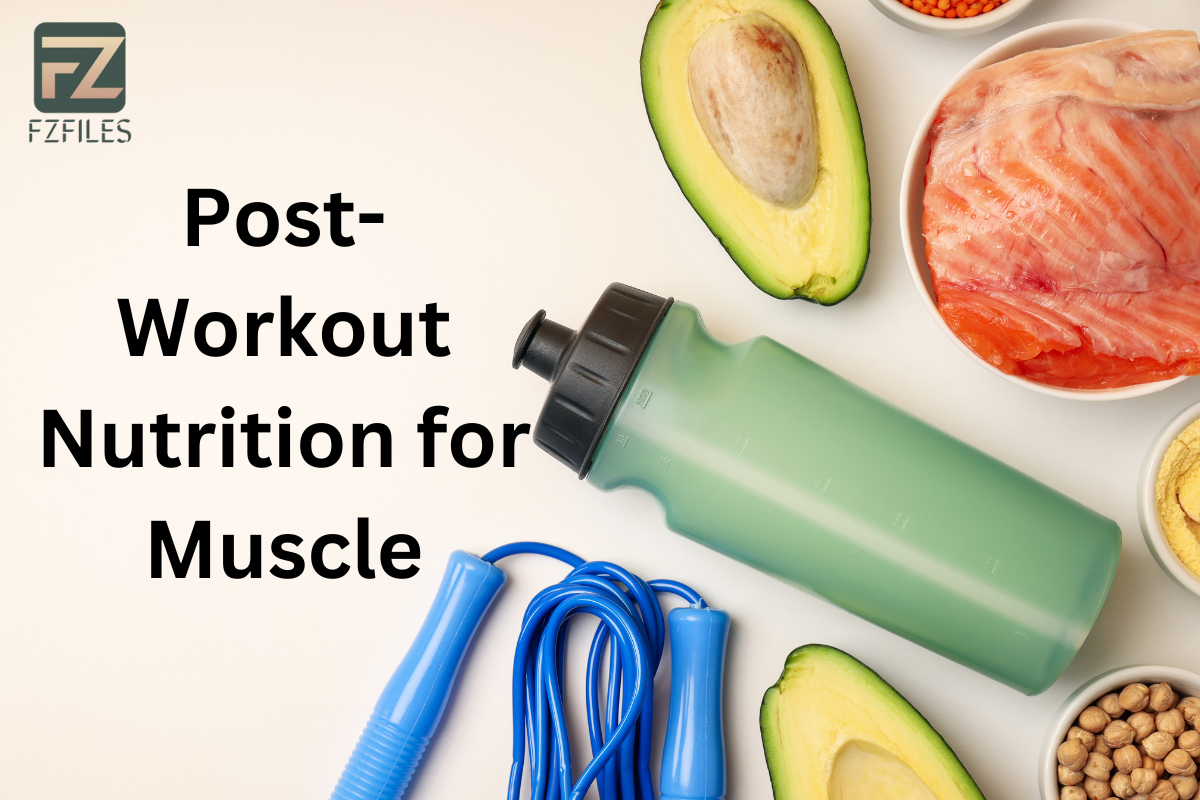Introduction to Post-Workout Nutrition
After a rigorous workout, your body needs proper nourishment to recover and grow stronger. This is where post-workout nutrition plays a crucial role. Consuming the right balance of protein, carbohydrates, and healthy fats can significantly enhance muscle recovery and overall performance. This comprehensive guide explores the best post-workout nutrition practices for 2024, incorporating the latest research and expert recommendations.
Benefits of Post-Workout Nutrition
Muscle Recovery
Intense exercise causes microscopic damage to muscle fibers. Consuming protein after a workout helps repair these fibers, leading to muscle growth. Amino acids, the building blocks of protein, are essential for this recovery process.
Glycogen Replenishment
Carbohydrates are stored in the muscles as glycogen, which is used for energy during exercise. After a workout, replenishing glycogen stores is crucial for recovery and preparation for the next session. This is why carbohydrates are an essential component of post-workout nutrition.
Reduced Muscle Soreness
Post-workout nutrition can also help reduce muscle soreness. Consuming foods rich in antioxidants and anti-inflammatory properties can mitigate the oxidative stress and inflammation caused by intense exercise.
Enhanced Hydration
Hydration is often overlooked in post-workout nutrition. Replenishing lost fluids and electrolytes is vital for maintaining performance and preventing dehydration-related issues.
Optimal Post-Workout Nutrients
Protein
Importance of Protein
Protein is essential for muscle repair and growth. It provides the amino acids necessary for rebuilding muscle fibers that are broken down during exercise. Consuming protein within 30 minutes to 2 hours after a workout is recommended for optimal recovery.
Best Sources of Protein
- Whey Protein: Rapidly absorbed, making it ideal for post-workout consumption.
- Chicken Breast: A lean wellspring of top-notch protein.
- Greek Yogurt: Contains both protein and carbohydrates, making it a great recovery snack.
- Eggs: Provide high-quality protein and essential nutrients.
Carbohydrates
Importance of Carbohydrates
Carbohydrates are crucial for replenishing glycogen stores. Consuming carbohydrates post-workout ensures that your muscles are ready for the next exercise session. The combination of protein and carbohydrates has been shown to enhance glycogen resynthesis.
Best Sources of Carbohydrates
- Brown Rice: An intricate carb that gives supported energy.
- Sweet Potatoes: Rich in vitamins and fiber, and an excellent carbohydrate source.
- Quinoa: A nutrient-dense grain that also contains protein.
- Fruits: Natural sugars and vitamins help replenish glycogen and provide essential nutrients.

Healthy Fats
Importance of Healthy Fats
Healthy fats support overall health and help reduce inflammation. While they are not the primary focus of post-workout nutrition, including some healthy fats can aid in recovery.
Best Sources of Healthy Fats
- Avocado: Provides healthy monounsaturated fats.
- Nuts and Seeds: Rich in omega-3 fatty acids and protein.
- Olive Oil: Contains anti-inflammatory properties and healthy fats.
Hydration
Importance of Hydration
Staying hydrated is crucial for muscle function and overall recovery. Electrolytes lost through sweat need to be replenished to maintain fluid balance and prevent cramps.
Best Hydration Strategies
- Water: The most essential component of hydration.
- Electrolyte Drinks: Help replenish lost electrolytes.
- Coconut Water: A characteristic wellspring of electrolytes and hydration.
Creating a Balanced Post-Workout Meal
Timing of Post-Workout Nutrition
The timing of your post-workout meal is crucial. Consuming nutrients within 30 minutes to 2 hours after your workout maximizes recovery benefits. This period is known as the “anabolic window,” during which your body is primed to absorb nutrients and initiate the recovery process.
Sample Post-Workout Meals
Protein Smoothie
Ingredients:
- 1 scoop whey protein
- 1 banana
- 1 cup spinach
- 1 tablespoon almond butter
- 1 cup almond milk
Instructions:
- Blend all ingredients until smooth.
- Consume immediately after your workout.
Chicken and Quinoa Bowl
Ingredients:
- 1 grilled chicken breast
- 1 cup cooked quinoa
- 1 cup steamed broccoli
- 1 tablespoon olive oil
Instructions:
- Combine grilled chicken, quinoa, and steamed broccoli in a bowl.
- Drizzle with olive oil and enjoy.
Greek Yogurt Parfait
Ingredients:
- 1 cup Greek yogurt
- 1/2 cup granola
- 1/2 cup mixed berries
Instructions:
- Layer Greek yogurt, granola, and berries in a bowl.
- Serve immediately after your workout.
Expert Tips for Muscle Recovery
Listen to Your Body
Every individual is different, and what works for one person may not work for another. Pay attention to how your body responds to various foods and adjust your post-workout nutrition accordingly.
Prioritize Whole Foods
While supplements can be beneficial, prioritizing whole foods ensures that you get a wide range of nutrients. Whole foods provide essential vitamins, minerals, and antioxidants that supplements may lack.
Plan Ahead
Preparation is key to maintaining a consistent post-workout nutrition routine. Plan your meals and snacks to ensure healthy options are available after your workouts.
Avoid Processed Foods
Processed foods often contain added sugars, unhealthy fats, and artificial ingredients that can hinder recovery. Focus on whole, nutrient-dense foods to support optimal recovery.
Get Enough Sleep
Sleep is a critical component of recovery. Go for the gold long periods of value rest every night to help muscle fix and general well-being.
Stay Consistent
Consistency is key to seeing results. Make post-workout nutrition a regular part of your routine to maximize the benefits of your workouts.
Common Post-Workout Nutrition Myths
Myth 1: You Need Protein Shakes Immediately After a Workout
While protein shakes can be convenient, they are not the only option for post-workout nutrition. Whole foods like chicken, fish, eggs, and dairy can provide the same benefits. The timing is important, but you don’t have to consume protein shakes immediately if you have a balanced meal plan within a couple of hours.
Myth 2: Carbohydrates Are Not Necessary Post-Workout
Carbohydrates are crucial for replenishing glycogen stores and should not be overlooked. Combining protein with carbohydrates enhances recovery and prepares your muscles for future workouts.
Myth 3: Fat Should Be Avoided Post-Workout
Healthy fats can be part of your post-workout meal. They do not significantly slow down digestion and can provide essential nutrients that aid in recovery.
The Science Behind Post-Workout Nutrition
Protein Synthesis
Protein blend is the interaction by which your body fabricates new proteins. Post-workout nutrition aims to maximize protein synthesis, promoting muscle growth and repair. Consuming protein after a workout provides the amino acids necessary for this process.
Glycogen Replenishment
Exercise depletes glycogen stores in your muscles. Starches are separated into glucose, which is then put away as glycogen. Consuming carbohydrates after a workout helps replenish these stores, ensuring that you have enough energy for your next workout.
Hormonal Responses
Exercise impacts various hormones in your body, including insulin and cortisol. Insulin helps with the uptake of nutrients into cells, making it important to consume carbohydrates and protein post-workout. Cortisol, a stress hormone, is reduced when you consume a balanced post-workout meal, aiding in recovery.
Post-Workout Nutrition for Different Types of Workouts
Strength Training
For strength training, focus on consuming protein to repair and build muscle, along with carbohydrates to replenish glycogen stores. A protein shake with a banana or a chicken and rice meal are excellent options.
Endurance Training
Endurance workouts deplete glycogen stores significantly. Prioritize carbohydrates to replenish these stores and include some protein for muscle repair. A smoothie with fruits, yogurt, and a scoop of protein powder works well.
High-Intensity Interval Training (HIIT)
HIIT workouts require both protein and carbohydrates for recovery. A balanced meal with chicken, quinoa, and vegetables, or a protein-rich smoothie with added oats, can provide the necessary nutrients.
Tailoring Post-Workout Nutrition to Your Goals
Muscle Gain
For muscle gain, prioritize protein intake and include carbohydrates to support recovery and energy levels. Aim for 20-30 grams of protein and 40-50 grams of carbohydrates post-workout.
Weight Loss
If your goal is weight loss, focus on lean protein sources and complex carbohydrates to support muscle recovery without excessive calorie intake. A protein shake with water or a turkey and vegetable wrap are good options.
Performance Enhancement
For performance enhancement, ensure a balanced intake of protein, carbohydrates, and healthy fats. This will support muscle recovery, glycogen replenishment, and overall health.
Conclusion
Proper post-workout nutrition is essential for muscle recovery, growth, and overall performance. By focusing on a balanced intake of protein, carbohydrates, and healthy fats, you can optimize your recovery and achieve your fitness goals. Remember to listen to your body, prioritize whole foods, and stay consistent with your nutrition routine. With the right approach, you can enhance your workouts and enjoy the benefits of improved muscle recovery and performance.

[…] enhance muscle growth and endurance. For example, you can alternate between HIIT and weightlifting sessions throughout the […]